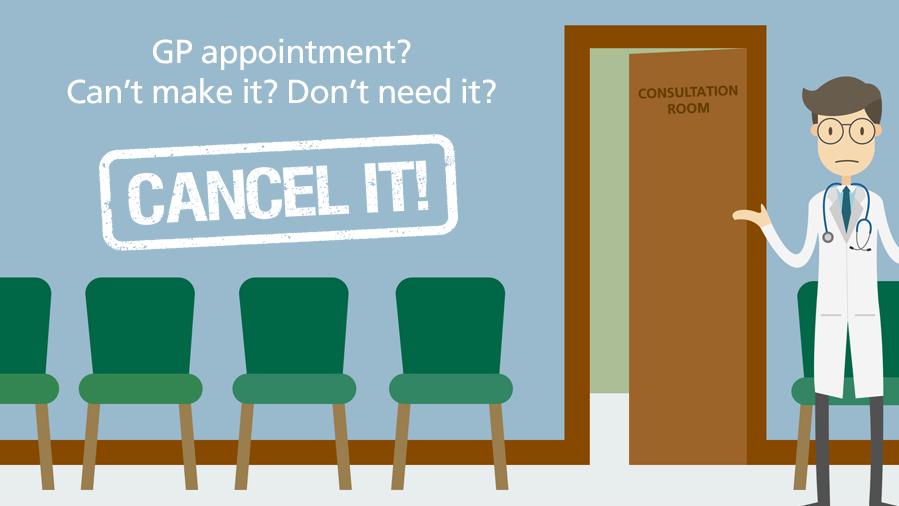Did Not Attend (DNA) Policy
Background Information
More than 15 million general practice appointments are being wasted each year because patients do not turn up and fail to warn surgeries that they will not be attending.
There are around 307 million sessions scheduled with GPs, nurses, therapists and other practice staff every year and 5% – one in twenty – are missed without enough notice to invite other patients. That works out as around 15.4 million missed slots.
Of these, around 7.2million are with busy family doctors, which adds up to more than 1.2 million GP hours wasted each year – the equivalent of over 600 GPs working full time for a year.

Each appointment costs an average of £30, putting the total cost to the NHS at more than £216million pounds on top of the disruption for staff and fellow patients that would pay for:
- The annual salary of 2,325 full time GPs
- 224, 640 cataract operations
- 58,320 hip replacement operations
- 216,000 drug treatment courses for Alzheimer’s
- The annual salary of 8, 424 full time community nurses
Policy
Failure to attend an appointment is commonly referred to as “Did Not Attend” or DNA. For the purpose of this policy, the acronym DNA will be used.
All DNAs, including missed phone calls, are recorded within our clinical system in each patient’s healthcare record with the following codes:
- Did not attend – Reason given
- Did not attend – No reason given
- Failed Encounter – no answer when rang back
The Operations Lead reviews DNA statistics on a monthly basis, presenting this information at the weekly team leaders meeting on the first Tuesday of the month with the previous months data. DNAs are displayed, highlighting the facts in the waiting room and on the organisation’s website.
Statistically, signs that communicate the number of patients who did not attend in previous months, with signs that conveyed the much larger number of patients who did turn up, resulted in a 31.7% reduction in DNAs compared to the previous 12 months’ average.
DNA Logging
In addition to recording DNA upon the clinical system, the organisation also logs all patients who fail to attend monthly onto the DNA Logging Toolkit.
Logging these failures to attend achieves the following:
- Monitors DNA and looks at trends
- Acts as a methodology should a patient complain that there is a lack of available appointments
- Provides a tool to promote any new initiative or preventative measures that have been established
- Promotes CQC compliance
Children who fail to attend
Awareness is to be given to children who fail to attend an appointment.
Whilst all missed appointments have traditionally been classified as a “Did Not Attend”, this group actually needs to be classified as “Was Not Brought” as it is not a child’s responsibility to attend the appointment; it is the responsibility of their parents or carers to take them. As such, awareness must be given to this and the consideration that this could be termed as medical neglect.
Any non-attendance by a child to their medical appointment will trigger a letter that needs to be sent to the parent or carer to ascertain the reasons behind the non- attendance. Any response from the parent or guardian will also be noted in the patient’s clinical record.
All missed appointments should are to be flagged with the safeguarding lead
Summary
Patients who fail to attend their medical appointments continue to have a significant financial impact across the NHS. Having a robust management system in place will help to reduce the number of DNAs at Tavyside Health Centre and ensure that all patients have improved access to an appointment within an acceptable time frame.

